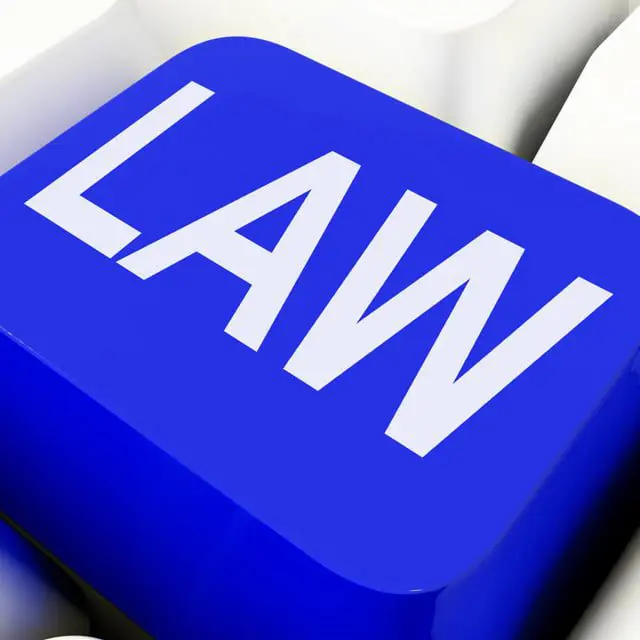In the intricate landscape of bankruptcy law, the appeals process stands as a beacon of hope for parties seeking redress from decisions that may significantly impact their financial or legal standing. Bankruptcy Appeals allow individuals or entities to challenge a bankruptcy court’s decision, providing a mechanism for oversight and correction where necessary. This article delves into the nuances of the appeals process within the realm of bankruptcy, offering insights into how appellants can navigate these waters effectively.
Understanding the Bankruptcy Appeals Process
The journey of a bankruptcy appeal begins with a party’s dissatisfaction with a bankruptcy court ruling. Whether it’s a dispute over the dischargeability of a debt, the confirmation of a bankruptcy plan, or any other decision made by the bankruptcy court, the appeals process is a structured avenue for seeking a review of that decision by a higher authority.
Filing an appeal involves several critical steps, starting with the submission of a notice of appeal within a strict timeframe following the contested decision. This initial step is crucial, as failing to file within the designated period can result in the loss of the right to appeal. The process then moves forward with the preparation of an appellate brief, a document that presents the appellant’s arguments, supported by legal precedents and evidence, to the appellate court.
The Role of Bankruptcy Appellate Panels and District Courts
Depending on the jurisdiction, a Bankruptcy Appeal may be heard by a Bankruptcy Appellate Panel (BAP) or a District Court. BAPs, where available, consist of bankruptcy judges who review appeals within their circuit, offering a specialized perspective on bankruptcy issues. In jurisdictions without a BAP or at the appellant’s election, the District Court takes on the role of reviewing bankruptcy appeals. The choice of appellate forum can have strategic implications, influencing the speed and outcomes of appeals.
Navigating the Challenges of Bankruptcy Appeals
The complexity of bankruptcy appeals cannot be understated. Appellants must navigate procedural nuances, prepare compelling legal arguments, and often engage in oral arguments before the appellate court. The appellate court’s role is not to re-try the case but to assess whether legal errors were made that could have materially affected the outcome of the bankruptcy court’s decision.
Success in an appeal requires a deep understanding of bankruptcy law, appellate procedure, and strategic legal writing. For many appellants, this necessitates partnering with attorneys who specialize in bankruptcy appeals, bringing expertise and experience to bear on the challenge at hand.
The Impact of Bankruptcy Appeals on Case Law and Practice
Beyond individual cases, Bankruptcy Appeals play a vital role in shaping bankruptcy law and practice. Appellate courts’ decisions can set precedents that influence how bankruptcy laws are interpreted and applied in future cases. This dynamic aspect of the appeals process underscores its importance not just to the parties involved but to the broader legal community and the development of bankruptcy jurisprudence.
Case Studies of Bankruptcy Appeals
Case Study 1: The Dischargeability of Debt A seminal case in the realm of bankruptcy appeals involved a debtor appealing a bankruptcy court’s decision that a certain debt was non-dischargeable due to fraud. The appellate court’s review focused on the interpretation of fraud under bankruptcy law and required a detailed analysis of the debtor’s intent and the harm to the creditor. This case highlighted the appellate courts’ role in clarifying legal standards for dischargeability, significantly impacting future bankruptcy proceedings.
Case Study 2: Plan Confirmation Appeals Another important case involved an appeal by a creditor against the confirmation of a debtor’s reorganization plan. The creditor argued that the plan did not comply with the requirements of the Bankruptcy Code for fair and equitable treatment. The appellate decision in this case provided critical guidance on plan confirmation standards, influencing how reorganization plans are structured and evaluated.
Analyzing Appellate Court Decisions
The examination of appellate court decisions reveals the intricate balance between the bankruptcy code’s provisions and the practical realities faced by debtors and creditors. For instance, appellate courts have often been tasked with interpreting the code’s ambiguous terms, such as “undue hardship” in the context of student loan discharge appeals. These decisions not only resolve individual disputes but also set legal precedents that guide bankruptcy courts nationwide.
Practical Advice for Parties Considering an Appeal
- Timely Filing: Ensure that your notice of appeal is filed within the strict deadlines set by bankruptcy law. Missing this window can forfeit your right to appeal.
- Legal Representation: Given the complexities of appellate litigation, securing experienced legal representation is crucial. An attorney skilled in bankruptcy appeals can navigate the procedural nuances and craft persuasive legal arguments.
- Evidence and Record: Understand that the appellate review is limited to the evidence and record presented in the bankruptcy court. New evidence is typically not permitted, underscoring the importance of a thorough initial presentation.
- Strategic Considerations: Evaluate the strategic implications of an appeal, including the potential for setting or challenging legal precedents, the financial and emotional costs, and the impact on the overall bankruptcy strategy.
- Alternative Resolutions: Consider whether alternative dispute resolution mechanisms, such as mediation or settlement discussions, might offer a more advantageous resolution to the dispute at hand.
Conclusion
Bankruptcy Appeals are a vital component of the bankruptcy process, providing a mechanism for review and correction of lower court decisions. Through case studies and the analysis of appellate decisions, we gain insight into the appellate process’s critical role in shaping bankruptcy law. For parties embroiled in bankruptcy disputes, understanding the appeal process’s strategic dimensions is essential. Whether challenging a court’s decision or defending against an appeal, the careful consideration of legal principles, procedural requirements, and strategic objectives will guide parties toward the most favorable outcomes.
Bankruptcy Appeals serve as a critical mechanism for ensuring fairness and justice in the bankruptcy process. By providing a pathway for the review of bankruptcy court decisions, the appeals process upholds the principle of legal accountability and contributes to the evolving landscape of bankruptcy law. For parties facing adverse decisions in bankruptcy court, understanding and effectively navigating the bankruptcy appeals process can be a crucial aspect of their legal strategy.
Disclosure: Generative AI Created Article
















